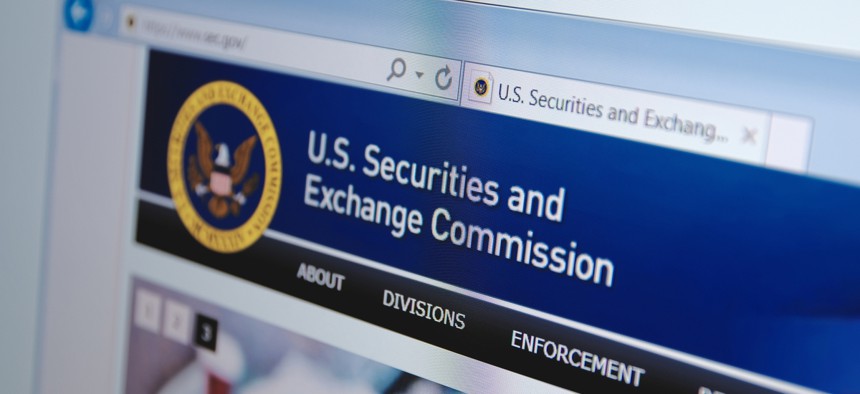SEC 'Forces Innovation' With New Data Science Program and a Massive IT Contract

g0d4ather/Shutterstock.com
The SEC is doing IT differently than it used to in the name of innovation.
The Securities and Exchange Commission is overhauling the way it purchases IT services in an effort to speed up acquisition, reduce costs and hopefully make the agency more attractive to the next generation of techies, according to its top tech official.
The commission in January began accepting bids for the Office of Information Technology contract, dubbed One OIT, a $2.5 billion enterprisewide vehicle that will modernize the way SEC purchases IT infrastructure, data analytics tools, application development and address virtually all other technology needs for up to 10 years. The vehicle whittles down hundreds of scattered contracts to just 18 vendors, with 15 slots reserved for small businesses and three unrestricted awards.
On Tuesday, the agency announced that Accenture Federal Services, Attain and Booz Allen Hamilton had won the unrestricted slots. The small business awards have yet to be finalized.
In a conversation with Nextgov at the AWS Public Sector Summit, SEC Chief Information Officer Pamela Dyson said merging the agency’s IT needs into a modernized, longer-term vehicle would streamline processes while deepening the commission’s relationships with vendors.
“We want contractors who will learn the SEC, get to know our environment, understand what our roadmaps look like from a technology standpoint and help us to continue to build on that strategy,” she said. “If you’re exchanging and interchanging contractors over and over you never build that relationship, so we’re hoping a part of this is we’ll get them to come in and really partner with us.”
In May, SEC launched a data science workstations platform that lets employees access a cloud environment where they can build and test new analytics models using the latest tools from industry. People can only reserve workstations for up to 30 days, creating a sense of urgency that “forces innovation” in IT, Dyson said.
The agency plans to use the initiative to attract more fresh-faced tech talent to its IT workforce, an issue the government has long struggled to overcome.
“One of the things that really frustrates industry [people] when they come in is process and governance—they’re used to coming in, getting things done quickly,” Dyson said. The workstations program “mirrors what’s happening in the private sector. We believe those innovative environments are really going to be an attraction for that skill set.”






